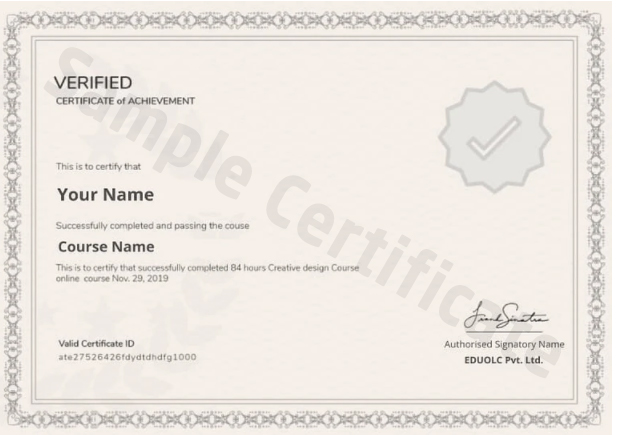- Duration / Course length: 4 Hours Start now
- Certificates:
- Course delivery: This course is delivered in video format
Course details
Corporate Finance and Investment DecisionsManaging Working Capital, Factors for Capital Structure, Term of Funding Risk Appetite & Corporate Strategy
This course module offers a concise overview of the foundations of finance, with an emphasis on their relevance to a broad range of real-world contexts, including personal finance, business decision-making, and financial intermediation. You'll develop a solid understanding of corporate finance, from accounting concepts and financial analysis, how competitive markets produce demand, the choices companies make when making financial decisions, and risk attitudes.
The Specialization comes to a close with a Capstone assignment that helps you to put what you've learned in class to use. You will create an integrated system for value-based financial management and individual financial decision-making, as well as learn to analyze big strategic business and acquisition decisions and consider capital markets and institutions from a financial viewpoint. Corporate Finance Essentials can help you appreciate crucial financial problems affecting businesses, consumers, and the economy as a whole. At the completion of this course, you should be able to understand the majority of what you read in the financial press and use basic financial terminology used by businesses and finance practitioners.
You'll also learn how to identify and control credit risk, as well as how to handle financial difficulties. The mechanisms of dividends and equity repurchases will be discussed, as well as how to pick the right way to return capital to owners. You'll also discover how to use derivatives and liquidity control to mitigate particular types of financial risk, such as currency risk. This Course is an attempt to avoid the above extremes. We discuss the core basis and mechanisms of modern corporate finance in a learner-friendly way. We will analyze the market's most fundamental problems, realize the intrinsic interests and preferences of investors, reveal the true meaning of specific financial terms, and uncover important issues that are so often ignored in choosing and valuing investment projects.
What you'll learn :
- Financing Growth - In this topic, we will learn financing growth refers to a company's use of leverage, equity, and hybrid funding to accomplish the cost-effective market expansion. This happens as the funding structure's expense and stability are compared to the company's cash-flow-driven value and growth potential.
- Managing Working Capital - In this section, we will see working capital is a strategic tool that enables businesses to make the most of their existing assets while also ensuring that they have enough cash flow to fulfill their short-term targets and commitments.
- Capital Structure - In this topic, we will learn a company's capital structure is the specific mix of debt and equity it employs to fund its overall activities and expansion. Equity capital is derived from a company's ownership interests as well as bets on potential cash flows and earnings.
- What is Leverage? - In this section, we will understand the use of debt (borrowed capital) to finance an acquisition or operation is known as leverage. When a business, land, or transaction is referred to as highly leveraged which means it has more debt than equity.
- Factors for Capital Structure - In this section, we will see the prime factors affecting capital structures based on market conditions.
- Term of Funding - In this topic, we will learn this concept is used when a company uses its own funds to meet its cash needs, while borrowing is used when the company obtains money from outside sources.
- Risk Appetite & Corporate Strategy - In this section we will learn management must be able to monitor levels of vulnerability against the risk appetite statement and risk tolerances, even if a risk appetite statement determines the overall level of risk. When risk aversion and policy are linked, the amount of risk associated with a strategy becomes clearer.
- Corporate Strategy with Market Condition - In this topic we will see the company's automotive engine is its business policy. It propels the company toward its long-term objectives. The marketing plan is a guide that defines how you can draw consumers to a product on a commercial basis.
Eligibility / Requirements
- No prior accounting knowledge is necessary to learn this course.
- Basic fundamentals of Mathematics will help.
Job roles this course is suitable for:
Vice President , Corporate Development , Vice President , Financial Planning and Analysis , Senior Manager Treasury OperationsAbout EDUOLC
Every course in EDUOLC is taught by top institutors in the industry. We provide video tutorials and a customized learning platform that empowers learners to train at their own pace. Besides our vast collection of online tutorials, Eduolc offers a continuous stream of authentic content.
Every course comprises a series of learning materials created in high-quality videos. Eduolc is committed to building the best learning experience to bring world-class training content and best learning practices delivering to students and professionals.



